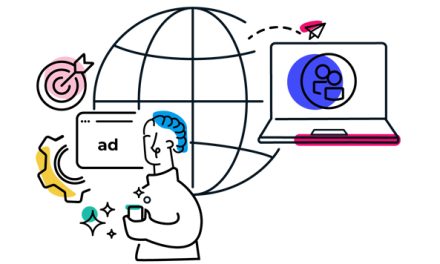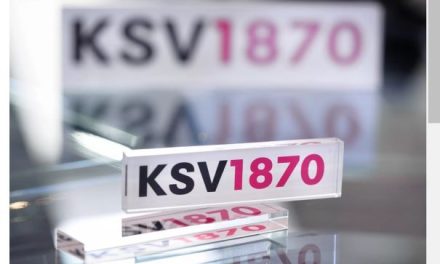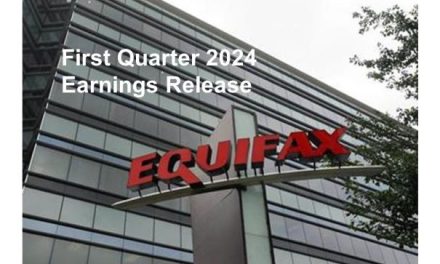RISE IN REQUESTS FOR CIC CREDIT REPORTS, CREDIT BUREAU SCORES SIGNAL POTENTIAL FOR MSME GROWTH
Two of the accredited credit bureaus of the state-run Credit Information Corporation (CIC)—CIBI Information, Inc. and CRIF Philippines—have reported an increase in credit report inquiries for financial and loan purposes during the COVID-19 pandemic.
 CIC’s OIC President and CEO, Atty. Aileen L. Amor-Bautista, stated that this is primarily due to the continuous expansion of the CIC database in the past months. “The CIC database remains the largest and most comprehensive database in the country covering almost 36 percent of the country’s adult population from across 534 financial institutions submitting data to the credit registry,” the OIC PCEO shared.
CIC’s OIC President and CEO, Atty. Aileen L. Amor-Bautista, stated that this is primarily due to the continuous expansion of the CIC database in the past months. “The CIC database remains the largest and most comprehensive database in the country covering almost 36 percent of the country’s adult population from across 534 financial institutions submitting data to the credit registry,” the OIC PCEO shared.
CIBI reported an increasing amount of CIC data usage particularly in the automotive sales industry, while CRIF reported similar increase in activity with consumer financing, including portfolio reviews “For lenders, the demand for credit reports was anticipated as they look to qualify their existing borrower base to be able to take proactive measures on managing their credit portfolio and to onboard new borrowers with their new COVID-19-driven risk frameworks,” Atty. Amor-Bautista said.
Potential for MSME growth
She also stated that the drive for credit reports and credit scores could be a signal that individuals may be looking to get loans to start small businesses: “For employees who are suffering a cutback in terms of working hours or facing the threat of losing their jobs completely, it would not be unusual for them to think of starting a small business on the side. The same might even apply to mothers who now need to stay home to homeschool their kids.”
The CIC database already contains the credit records of approximately 89,000 companies/sole proprietors and can be scored by the CIC’s accredited credit bureaus. Both CRIF and CIBI are offering micro, small, and medium enterprises (MSME) credit scoring for their clients, including banks, using the CIC database.
The OIC PCEO also explained how start-ups rely on their personal credit standing to get the most out of that first loan that will start their business: “Many start-ups classify their initial ventures into business either under credit card applications, vehicle loans, or general purpose loans.”
“The CIC is willing to work with government agencies who would like to explore the possibility of using statistical data from the CIC in the implementation of various stimulus strategies being proposed for start-ups, as well as MSMEs,” she added.
Credit scoring, assessing creditworthiness
Also known as Special Accessing Entities (SAEs), the CIC’s accredited credit bureaus are private corporations engaged in the business of providing credit scoring and other similar products and services. The Credit Information System Act (CISA) entitles them access to the CIC’s pool of consolidated basic credit data, subject to security requirements.
“Our credit bureaus use the CIC Credit Report in calculating a borrower’s credit score based on a defined ranking system. CIBI, for instance, generates credit scores through the Fair Isaac Corporation (FICO), a world leader in analytics solutions,” Atty. Amor-Bautista explained.
In addition to CIBI and CRIF, TransUnion Information Solutions is also an accredited credit bureau of the CIC.
Just as the CIC observed a surge in credit report requests from individual borrowers, the credit bureaus also reported an increased demand for credit scores from their clients.
“The CIC’s rich database is important for financial institutions that need accurate, reliable credit reports for broad portfolio review across all risk segments and a wider, more equitable view of their client’s creditworthiness and credit behavior pre-pandemic,” the OIC PCEO emphasized.
She added that the CIC’s ultimate objective, following its mandate under CISA, is to reduce the excessive dependence on collateral to secure credit facilities: “In the end, our goal and that of our SAEs is to use credit information for the benefit of both the lender and the borrower by giving both sides a better chance at mutually beneficial arrangements.”
Increasing number of accessing entities
The OIC PCEO also reported that the CIC has already onboarded 76 accessing entities—any submitting entity authorized by the Corporation to access its database.
“It has only been a year since we opened the registration for paid access and yet we already have major universal and commercial banks, savings and loan associations, rural banks, cooperatives, thrift banks, and even government lending institutions accessing our database and actually using our credit data,” she added.
The list includes BDO Unibank, BPI, Metrobank Cards, PNB, UCPB Savings Bank, UnionBank of the Philippines, PS Bank, Equicom Savings Bank, ING Bank N. V. Manila branch, Sterling Bank of Asia Inc., Home Credit Consumer Finance Philippines, Toyota Financial Services, and Small Business Corporation.
“We are also posting on our website the list of our accessing entities so that consumers are aware which institutions are accessing their credit data through the CIC and are using it to evaluate properly their creditworthiness prior to granting loans and other financial services,” the PCEO ended.
# # #
 The Credit Information Corporation (CIC), a government-owned and controlled corporation, was created by Republic Act No. 9510, otherwise known as the Credit Information System Act (CISA). The primary mandate of CIC is to establish a comprehensive and centralized credit information system for the collection and dissemination of fair and accurate information relevant to, or arising from, credit and credit-related activities of all entities participating in the ecosystem.
The Credit Information Corporation (CIC), a government-owned and controlled corporation, was created by Republic Act No. 9510, otherwise known as the Credit Information System Act (CISA). The primary mandate of CIC is to establish a comprehensive and centralized credit information system for the collection and dissemination of fair and accurate information relevant to, or arising from, credit and credit-related activities of all entities participating in the ecosystem.


























